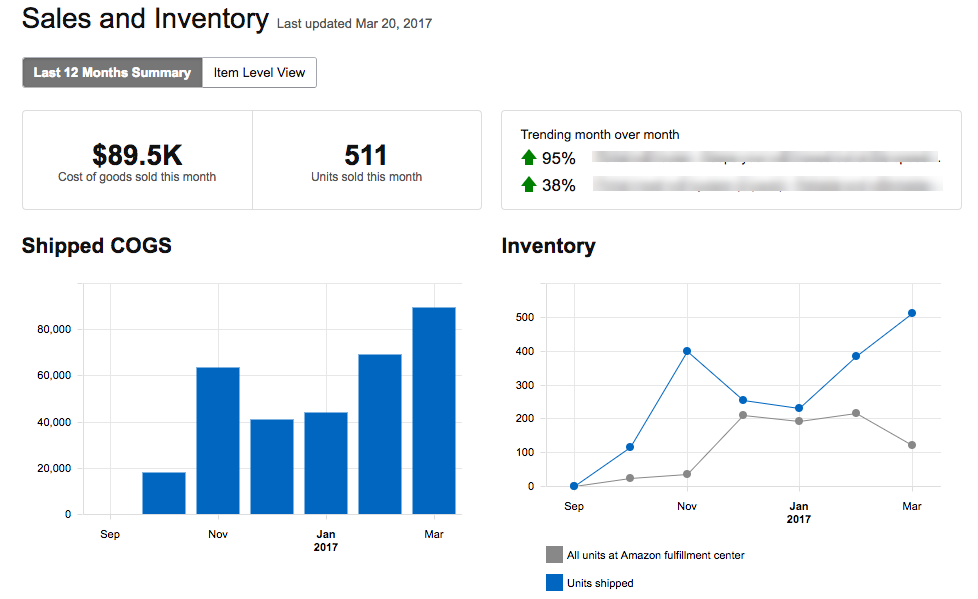For many brands, entering a wholesale relationship with Amazon can be puzzling. There are two ways of selling wholesale on Amazon. One is Vendor Central, which is an invite-only platform offered to brands with high sales performance. The other one is Vendor Express, which allows sellers to transition to a wholesale program without an invitation from Amazon.
Effective and efficient monitoring is one of the most important aspects of keeping a wholesale account in good health on Amazon. In a previous post, Bobsled Marketing Project Manager Joy Bastawrous shared her top daily and weekly monitoring tasks for brands selling on Vendor Central. In today’s article, I will focus on the must-do activities that brands should be completing in their VE account every day, week and month, in order to get the best results from selling on this platform.
Where to start
Do you have a solid checklist to maintain your Amazon Vendor Express (VE) account on a daily, weekly, and monthly basis? In our experience, there’s no better way to keep products performing their best when you’re constantly checking in.
In order to do that, you need a solid management plan that outlines how to effectively navigate the platform, what activities you should be doing on a regular basis, and what analytics to keep an eye on. Unfortunately, Amazon doesn’t offer much in the way of guidance on how to use the VE platform or how brands should manage their account.
Here's What You Should Do Daily, Weekly and Monthly to Effectively Manage Your Vendor Express Account
As a springboard for our clients and others who are trying to do more on Amazon, we’ve put together a checklist to build a healthy VE account. With this in hand, you can create documented, repeatable processes that can be customized to your brand’s exact needs.
Checklist For A Healthy Amazon Vendor Express Account
DAILY TASKS
1. Check in on your AMS campaigns
Amazon Marketing Services offers targeted cost-per-click advertising solutions to help Amazon vendors reach new customers and drive sales on Amazon.com. This platform is available only for vendors using Vendor Express or Vendor Central, and offers more ad types than Seller Central. Being a more advanced PPC platform than Seller Central, it’s important to check in on your AMS campaigns daily. Sponsored Products, Headline Search Ads, and Product Display Ads. If you’re not accessing AMS, you’re missing out on one of the main benefits of selling as a vendor.
2. Monitor your Operational Metrics
Do a quick check of your operational metrics every day. Log in to your account and select Operational Performance under Reports. Maintaining a healthy account and selling status on Amazon requires diligently addressing chargebacks and/or issues related to product packaging, inbound shipments, and more. Don’t allow negative metrics to linger—contact Amazon support and work to resolve the issues as soon as you see them!

WEEKLY TASKS
1. Sales and Inventory Reports
All brands will want to keep an eye on their product sales. The Sales and Inventory section under Reports in your VE account offers a picture of your Cost of Goods Sold to customers (COGS) and inventory levels within Amazon warehouses on a month-to-date basis, while also providing a month-to-month picture of your sales.

Scrolling down the page offers details of inventory and purchase order quantities:
- A. Units ordered by Amazon on a monthly basis: Has the number of units ordered by Amazon continued to increase? Is the rate slowing down?
- B. Warehouse Inventory: How many units are available at Amazon’s warehouses?
- C. Product returns: What is your return rate? Pay attention to any significant upticks in this number.

2. Purchase Orders
Establish a consistent schedule for checking POs from Amazon. Getting those filled and shipped to Amazon on a timely basis is a safeguard against potential stock-outs and is also critical to maintaining healthy account metrics.
3. Product Pages
Amazon’s first goal as a marketplace is customer satisfaction. Making this your goal as well will help you enjoy greater success as a vendor. Check your product pages each week and respond to any negative customer reviews. This demonstrates strong customer service, and can also clear up any product confusion or concerns for potential customers who are wondering if they should buy your product.
MONTHLY TASKS
1. Reports deepdive
Allowing about five days for sales to settle, take a close look at your Sales and Inventory reports. Make note of revenue, PO quantity, and inventory trends. Growth is the goal—if you note any dips or plateaus, evaluate the month to see if you can pinpoint a cause. Develop a plan to help trends move upward again.
2. Marketing
The VE platform offers many marketing opportunities for brands of all types! Evaluate your catalog, revenue, and profitability levels and determine a monthly promotional plan to help grow your sales. Some options could include:
I. Lightning Deals
Lightning Deals are a price discount promotion guaranteed to be featured on the Amazon Deals page, in the “Today’s Deals” section—one of the most visited pages on Amazon. While the timing of the actual deal is out of your control, the visibility afforded your product is a bonus, as is the halo effect that comes with it!
You can learn more about how lightning deals work, here.
II. Coupons
Coupons are a great marketing tool only available in Vendor accounts. They hold strong customer appeal and can be targeted in AMS through product display ads. Vendors can drive external traffic to a coupon landing page, whether you’re running coupons on multiple products or just one.
Amazon offers data around the coupon offer period, enabling vendors to measure their effectiveness. Data includes a “Sales Lift” figure, detailing the percentage increase in units sold during the coupon offer window of time when compared to the period of time immediately preceding it. We recently ran a coupon promotion for one of our clients. While the promotion was targeted with ads, we did not drive external traffic to the product page. Our client saw a sales lift of 26.9% during their coupon offer period!

III. Vendor Initiated Price Discount
Discounts can be a great way to move through overstocked SKUs of win the Buy Box on listings where you are competing against other sellers. They can last up to five weeks and ultimately increase demand for your product.
3. Product Page Audit
We like to establish a schedule for systematic product page review to ensure they are fully optimized.
I. A+ Content
If you have not already optimized your page using the A+ Content available to vendors, we highly recommend doing so! This allows you to tell the story of your product and your brand and is proven to positively impact conversion rates.
II. SEO Analysis
Do your titles and bullet points include the highest volume search terms for your product? This analysis could be done every 60-90 days, as opposed to 30.
III. Mobile Optimization
Are your listings appearing correctly on mobile devices? Even pages that initially displayed correctly can have issues. It’s worth your time to schedule monthly checks of product pages from mobile devices. After all, 50% of traffic these days is mobile!
IV. Product Reviews
How are your reviews looking? If you need to either improve your star rating, or grow your review numbers, accessing Amazon Vine could be an option.
The most successful VE accounts are ones that are managed regularly—using reliable, documented processes. A checklist will get you off on the right foot, but there’s a lot more to running a healthy Amazon Vendor Express account. If you’re interested in learning more about selling on this platform, you can sign up for our free Vendor Introductory training course here.
At Bobsled Marketing we work with dozens of brands using the Vendor Express, Vendor Central, and Seller Central platforms. Through our optimized product launch process, daily account management, PPC management, and strategic oversight, we help brands to get there faster.
.png)

